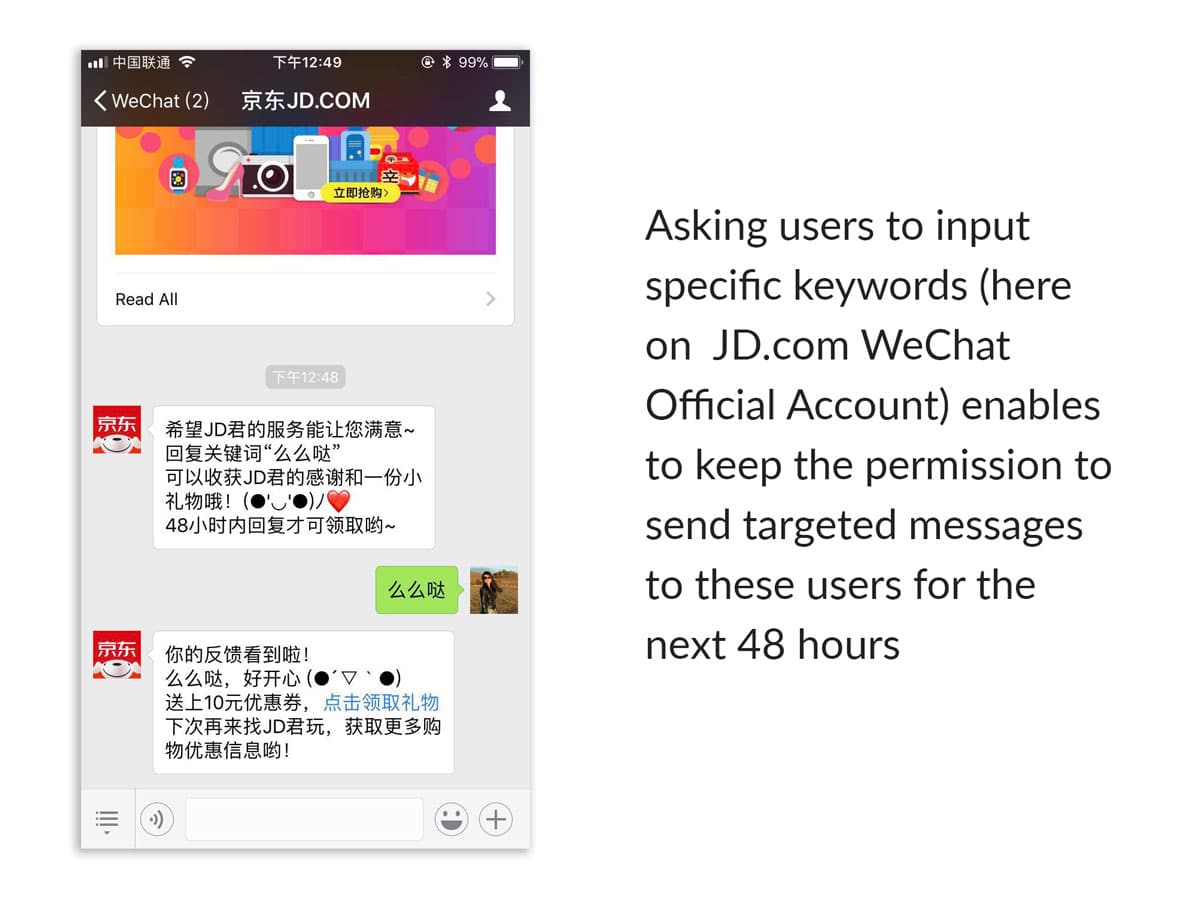WalktheChat is specialized in using WeChat for marketing. This means we developed quite a bit of expertise in using messaging Apps to reach customers. And lately, we’ve been applying this expertise to a new channel: Facebook Messenger.
The target
About a year ago, I wrote a 5-days email course about WeChat Marketing. The course has been a success, with many thousand people subscribing and benefiting from it.
As many of our readers are located outside China, I was wondering: would it be possible to adapt the course for Facebook Messenger?
The tools
In order to develop and distribute the course, I used a few tools at my disposal:
- ManyChat is a platform helping create Facebook Messenger experiences
- Facebook Ads were used in order to get users to signup
- Facebook Retargeting Pixel enabled to target users who had visited WalktheChat website
The results
The results of this (small scale) test were quite impressive:
- $28.21 USD of Facebook Ads spend
- 152 conversations started on Messenger on WeChat Account creation

That’s about $0.18 USD spent for a qualified, B2B lead which can then be engaged on the long-run! Let’s deep-dive a bit more about the strategies we used here.
The Facebook Messenger campaign
The secret from the campaign was to clearly lay down the content of the course. A simple, mobile-friendly description, quickly describing the content of the 5 lessons.
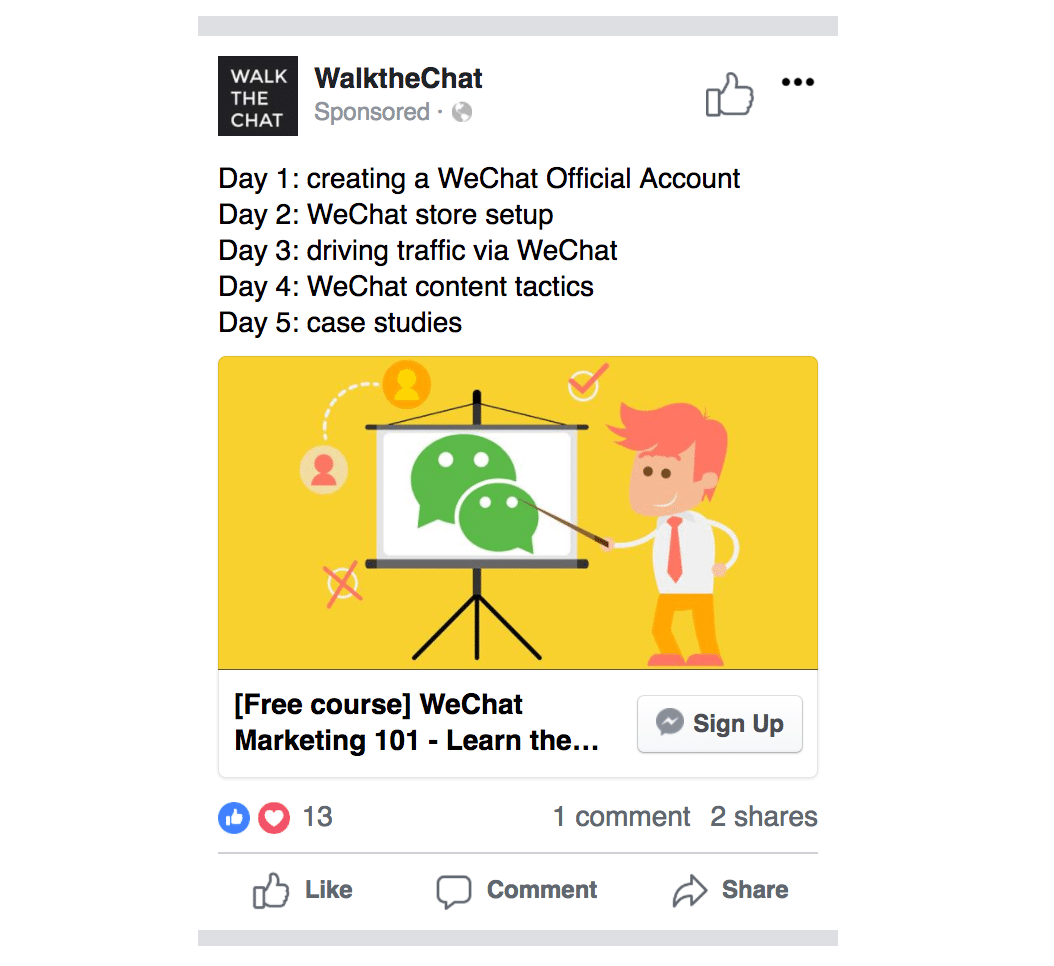
Targeting was aimed at two groups:
- Users who liked our Facebook page
- Users who had previously visited our website (re-targeting pixel)
When clicking the button, subscribers automatically got engaged in a ManyChat sequence, which took them in an interactive way through the steps of creating their WeChat Official Account.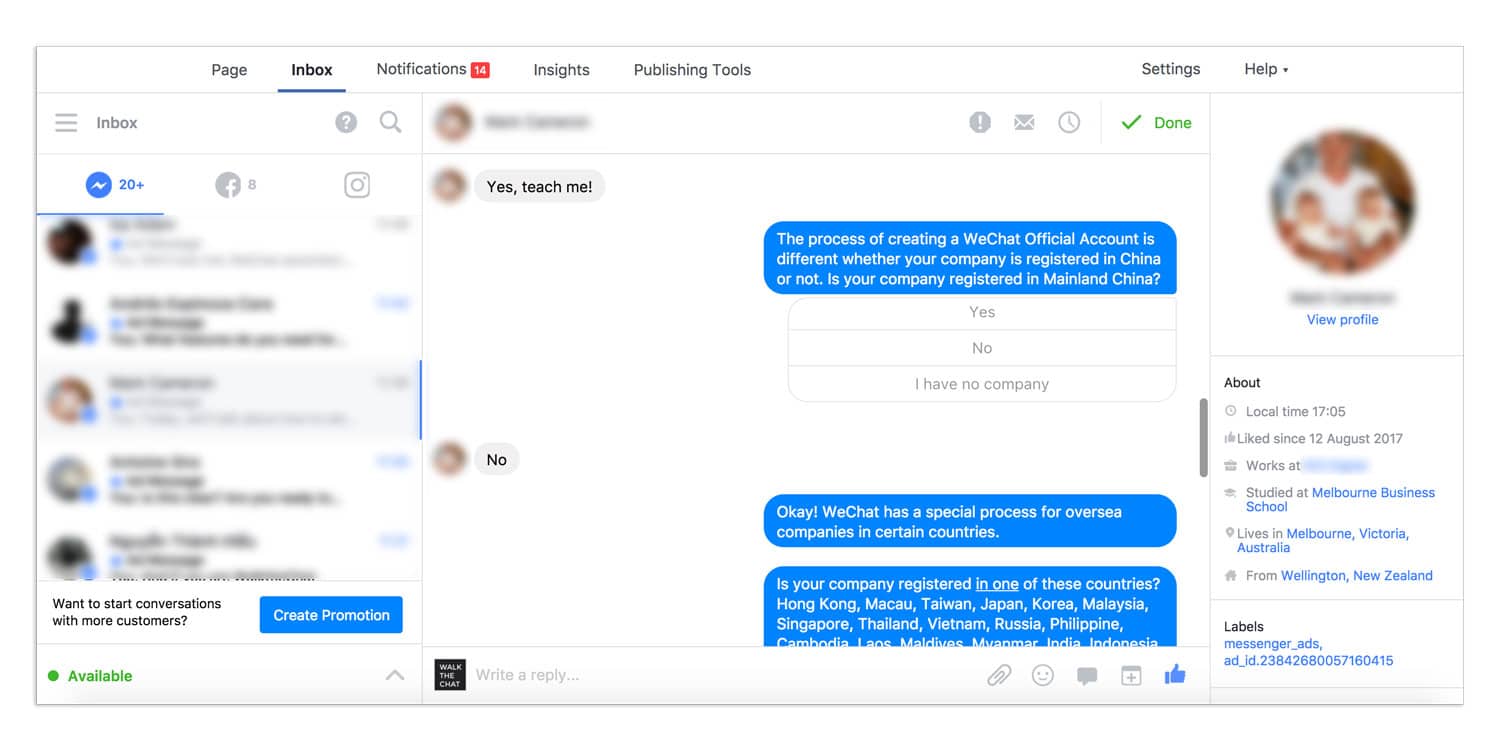 ManyChat enables to create “drip” sequences where messages are scheduled and progressively sent:
ManyChat enables to create “drip” sequences where messages are scheduled and progressively sent: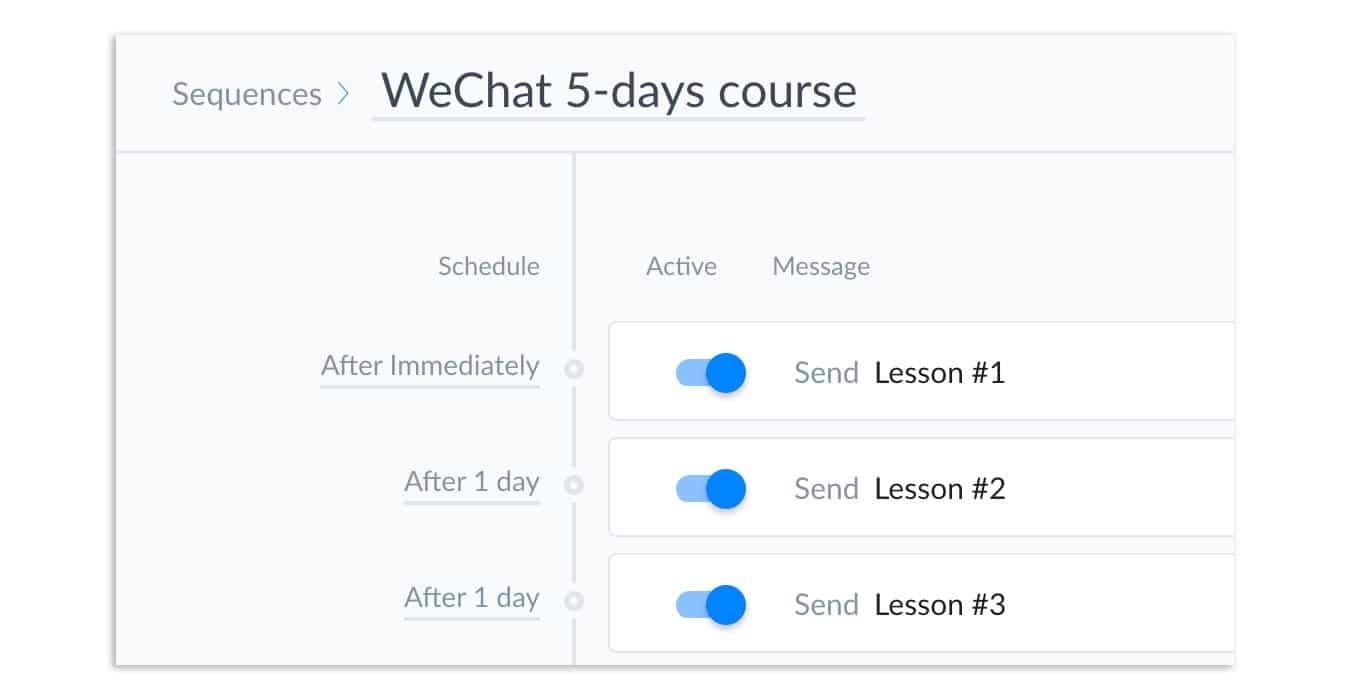
Why is Messenger a great way to give an online course?
There is are many ways you can deliver information to users and customers online. The two most important metrics in order to decide which platform to use are the following:
- How convenient/interactive is it for end users to access the course?
- How much can you learn about the person taking the course, in order to send out more relevant information in the future?
Here are how a few options perform on these two metrics:
- eBooks are the most traditional and inefficient way to go. They do not adapt well to multiple devices, and are therefore not very convenient for users. Once you have sent an ebook, you usually have no way of knowing how much of it was read, and which parts were most interesting to readers
- Email courses are already much more interactive: you can know which lessons had the best open rate, monitor the click-through-rate of links inside your lesson, and identify highly-engaged users
- Messenger courses take this interactivity to the next level: you can for instance collect information about users by taking them through different “decision trees” as they go through the course. You can also see the click-through rate of all the various elements you choose to include in your course
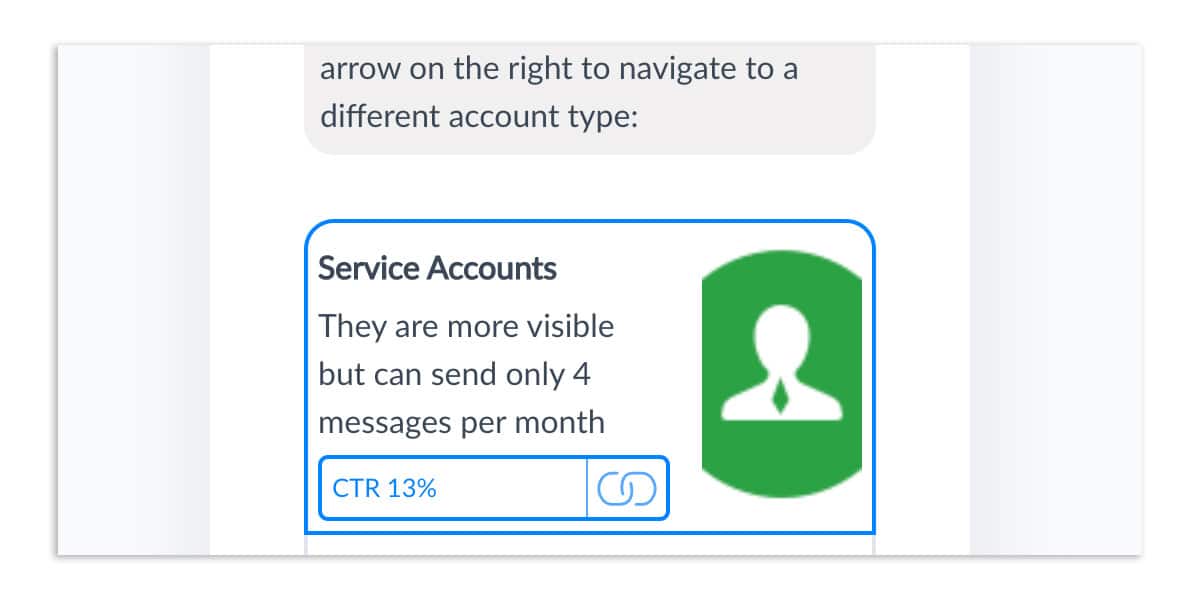
Messenger also enables you to automatically collect information about users, such as their email. You can then directly upload this information to a CRM system such as Hubspot or Salesforce (you can do this easily with a software called Zapier)
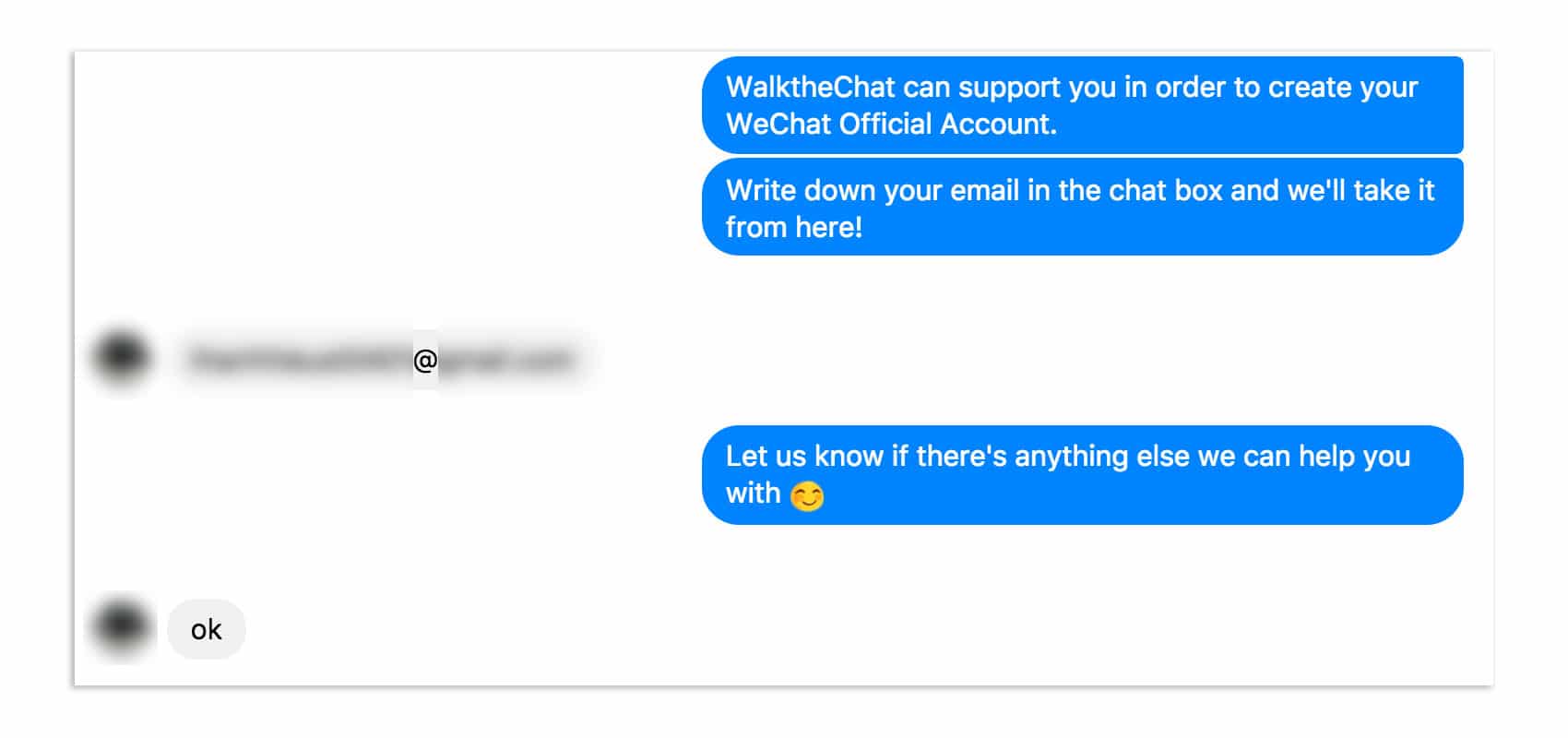
Moreover, some information is directly accessible through Facebook for all users, such as full name, location or place of employment. This makes it very easy to match Messenger leads with full LinkedIn profiles.
Can this workflow be translated to WeChat?
It is possible to use just the same strategy in WeChat, but it is more complex for a few reasons:
- WeChat is more conservative than Facebook in terms of limiting the quota of messages per user
- It is not very easy to send very customized messages via WeChat
- Facebook enables to dynamically give “suggestions” to the users in the chat window (like a multiple-choice menu), which is not possible via WeChat
In order to create such a course on WeChat, you will have to:
- Start the course when the user is in the 48 hours customer service window (just after the user joined the account, clicked on a menu item or wrote to the account). This is the period during which you can send unlimited promotional messages to the user
- Keep the user within this 48-hours customer service window through the course (so during each lesson you should ask the user to write something to the account so that they will be able to receive the next lesson on the following day)
Conclusion
Although pure chat-bot interfaces have not been very popular, they can do a good job at providing education while collecting a lot of information about users. Today, Facebook Messenger offers more flexibility for marketers to leverage this type of tactics, but they can also be transferred to WeChat with a bit of creativity.


